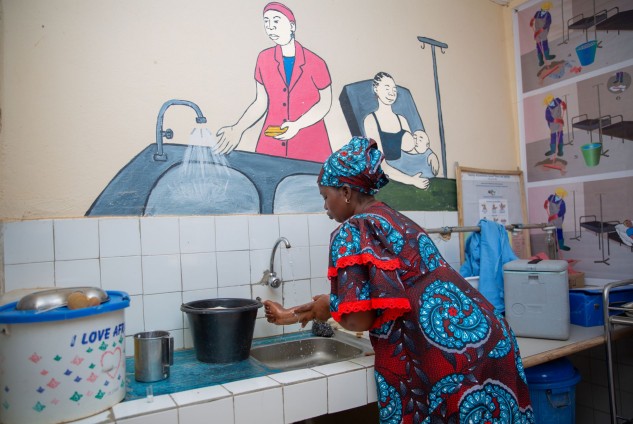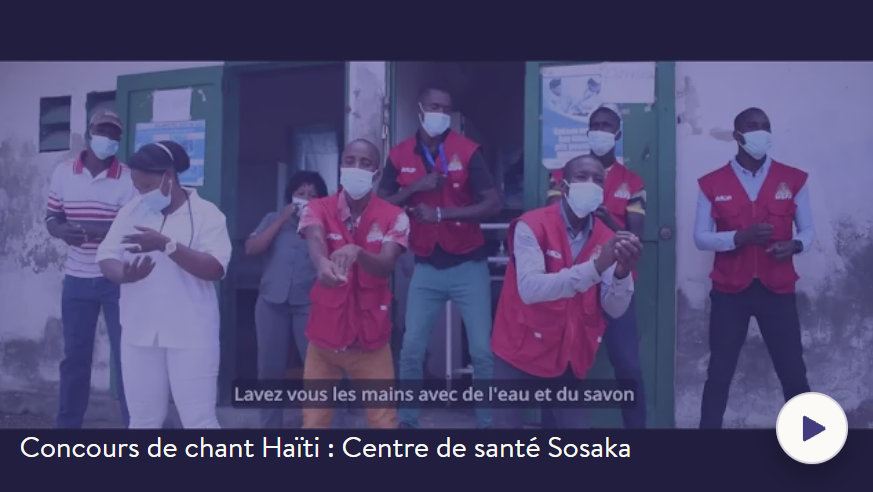One Drop in health care facilities

Sanata, a patient at the Touna community health centre (Bla district, Ségou region, Mali, May 2024), washes her hands at a sink in the delivery room. Credit: WaterAid/ Basile Ouedraogo
In 2023, nearly 10% of the world’s population had no water service at their health care facility.1
Update: October 2024
There is a major crisis when it comes to basic healthcare systems: 742 million people have no water service at their health care facility, and 660 million people have no sanitation service at their health care facility.2
These numbers are shocking, especially as the COVID-19 pandemic has demonstrated the critical need of water, sanitation, and hygiene (WASH) for the well-being of all. Beyond the infrastructure needs, even more urgent is the adoption of key behaviours to protect both patients and health care providers. Handwashing with soap is a highly effective way to prevent infection. In fact, timely hand hygiene prevents up to 50% of avoidable infections acquired during health care delivery, including those affecting the health workforce.3
Health care facilities need sufficient WASH provisions to deliver safe, quality health services and prevent and control infections for both patients and healthcare providers. In 2018, One Drop made a commitment as part of the United Nations Secretary-General’s Global Call to Action to prioritize action on WASH in all health care facilities. Since then, One Drop’s projects have supported more than 100 health care facilities towards gaining at least basic water, sanitation and hygiene infrastructure and services.
Since 2020, One Drop’s innovative Social Art for Behaviour Change™ approach has been used globally to design interventions aimed at inspiring, activating and sustaining positive health and hygiene practices. With the active participation of partners, artists, healthcare providers, youth groups, women's groups and other community members, we work to establish inclusive, community-driven, and participatory methods that are essential for long-term systems change.
These initiatives not only improve the quality of care but create lasting change, empowering communities to thrive in healthier, safer environments for generations to come.
1WHO/UNICEF : Joint Monitoring Programme (JMP). WASH in Health Care Facilities, 2023
2Joint Monitoring Programme (JMP). WASH in Health Care Facilities, 2023
3WHO/UNICEF : State of the World’s Hand Hygiene, 2021

